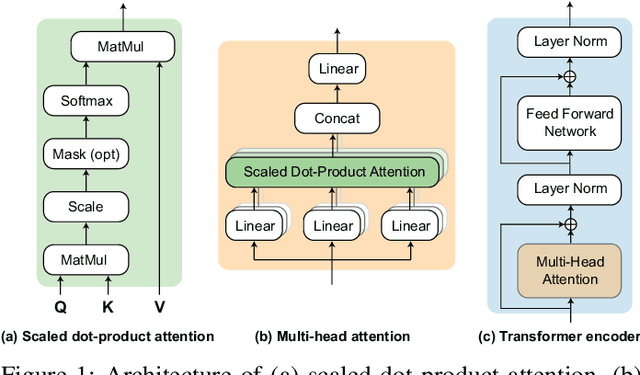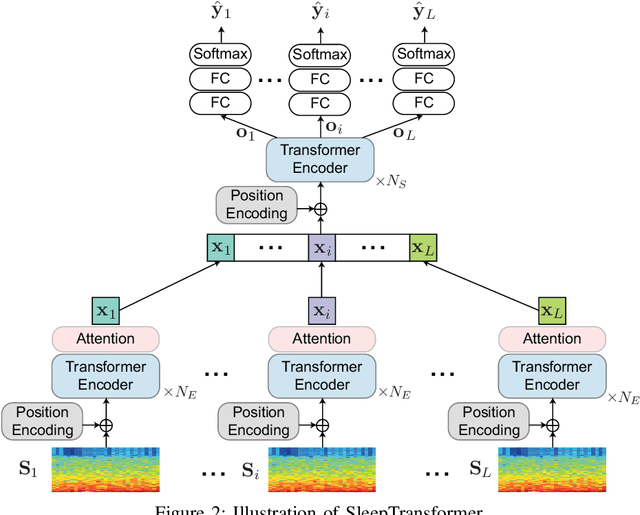SleepTransformer: Automatic Sleep Staging with Interpretability and Uncertainty Quantification
Paper and Code
May 23, 2021



Black-box skepticism is one of the main hindrances impeding deep-learning-based automatic sleep scoring from being used in clinical environments. Towards interpretability, this work proposes a sequence-to-sequence sleep-staging model, namely SleepTransformer. It is based on the transformer backbone whose self-attention scores offer interpretability of the model's decisions at both the epoch and sequence level. At the epoch level, the attention scores can be encoded as a heat map to highlight sleep-relevant features captured from the input EEG signal. At the sequence level, the attention scores are visualized as the influence of different neighboring epochs in an input sequence (i.e. the context) to recognition of a target epoch, mimicking the way manual scoring is done by human experts. We further propose a simple yet efficient method to quantify uncertainty in the model's decisions. The method, which is based on entropy, can serve as a metric for deferring low-confidence epochs to a human expert for further inspection. Additionally, we demonstrate that the proposed SleepTransformer outperforms existing methods at a lower computational cost and achieves state-of-the-art performance on two experimental databases of different sizes.
 Add to Chrome
Add to Chrome Add to Firefox
Add to Firefox Add to Edge
Add to Edge